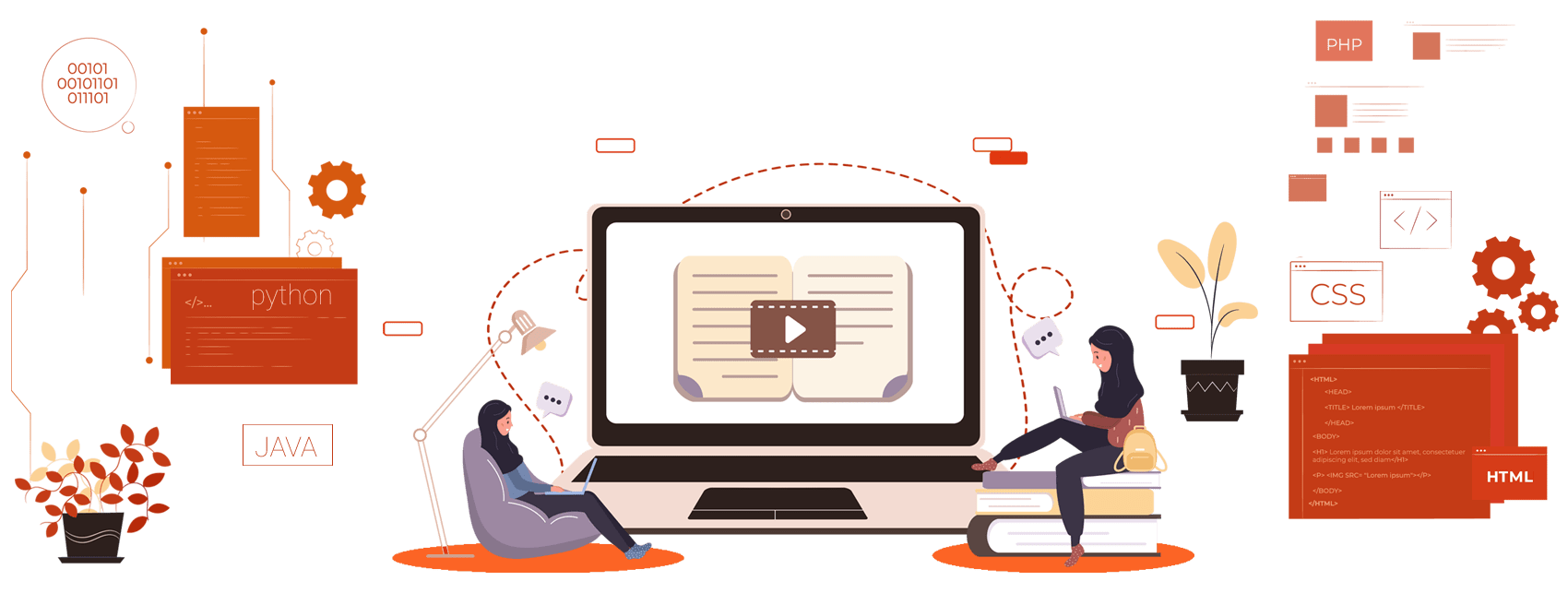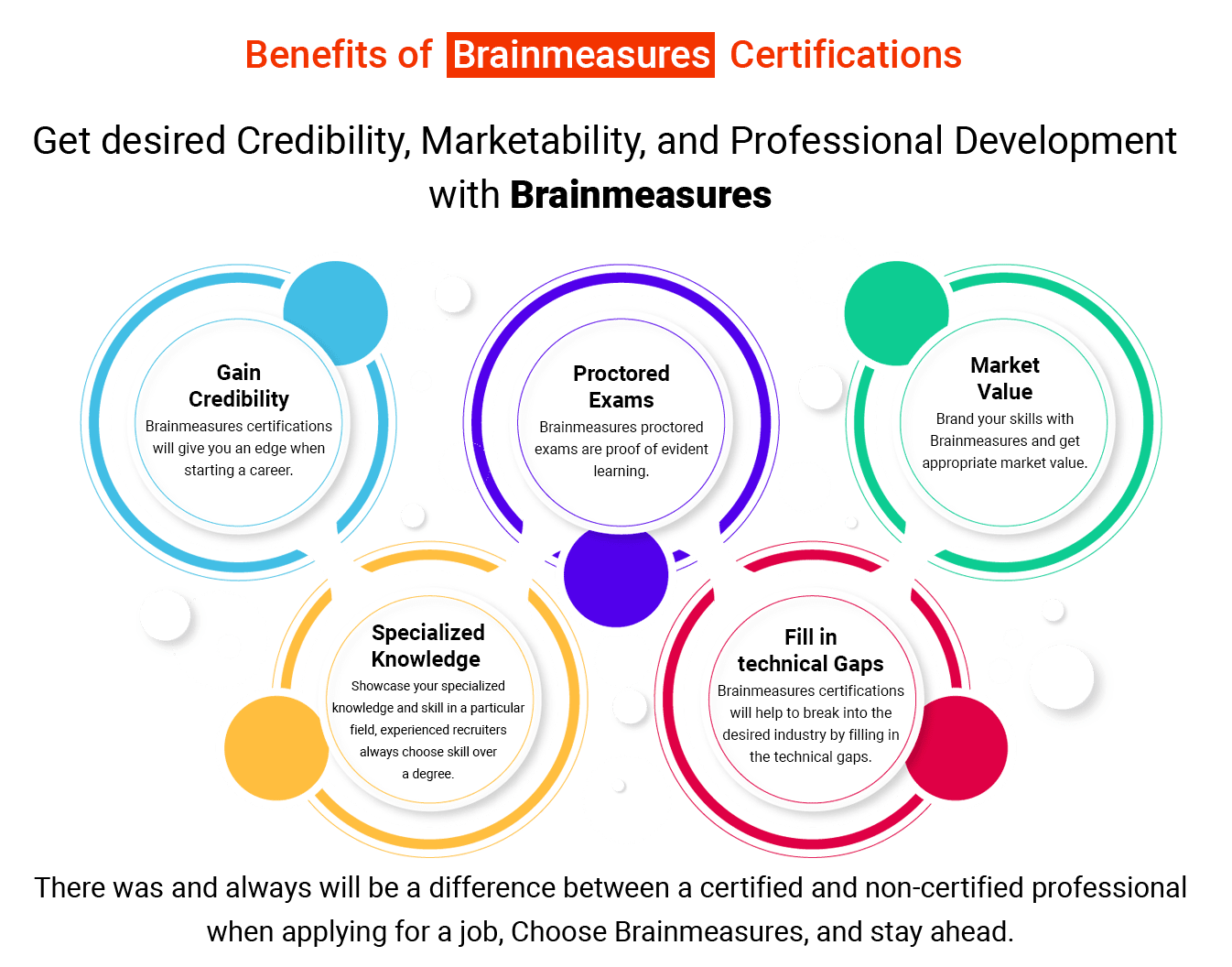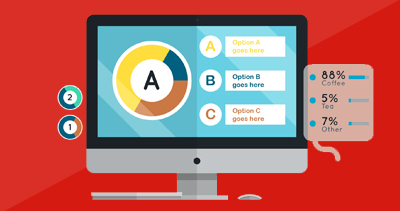
THIS CERTIFICATION IS AUTHENTIC AND ACCEPTED BY EMPLOYERS. HOW ? Read more
What You get
with this Course
Java Database Connection I JDBC I MySQL course

WHY IS THIS VIDEO TRAINING ONLINE CERTIFICATION HIGH IN DEMAND?
What is JDBC?
Java Database Connectivity (JDBC) is a Java programming language application programming interface (API) that defines how a client can access a database. It is a Java-based data access technology that is used to connect Java databases. It is a component of Oracle Corporation's Java Standard Edition platform. It is oriented toward relational databases and provides methods for querying and updating data in a database.
A JDBC-to-ODBC bridge allows connections to any ODBC-accessible data source in the host environment of the Java virtual machine (JVM). JDBC is an abbreviation for Java Database Connectivity. It is essentially a Java API that is used to execute and connect queries to databases. It is considered a component of Java SE, or Java Standard Edition. JDBC API makes use of JDBC drivers in order to connect to the database. We can think about four types of JDBC drivers, which are listed below:
JDBC-ODBC Bridge Driver, Thin Driver, Native Driver, and Network Protocol Driver are all included.
The JDBC API can be used to access tabular data stored in any relational database. You can save, update, delete, and retrieve data from the database using the JDBC API. As a result, it is considered Open Database Connectivity, or ODBC as provided by Microsoft.
Understanding JDBC
JDBC supports multiple implementations that can be used by the same application. The API provides a mechanism for dynamically loading and registering the appropriate Java packages with the JDBC Driver Manager. The Driver Manager is used to create JDBC connections as a connection factory. JDBC enables you to connect to a data source, send queries and update statements, and process the results.
Simply put, JDBC allows you to do the following within a Java application
Make a connection to a data source.
Send queries and updates to the data source.
Evaluate the outcomes
JDBC connections allow you to create and run statements. These can be either update statements like SQL's CREATE, INSERT, UPDATE, and DELETE, or query statements like SELECT. A JDBC connection can also be used to call stored procedures.
What Are the Benefits of Using JDBC?
Prior to JDBC, the database API to connect to and execute queries with the database was ODBC API. However, the ODBC API makes use of an ODBC driver written in C, and that platform is dependent and insecure. As a result, Java has defined its own API (JDBC API) that employs Java-written JDBC drivers.
We can use JDBC API to manage databases in Java programs and perform the following tasks:
Connect to the database
Run queries and update statements against the database.
Obtain the result of the database query.
Advantages
Some of the benefits of using are as follows
It has the ability to read any database. The only requirement is that all of the drivers be properly installed.
It generates the XML format of data from the database automatically.
It does not necessitate the conversion of the content.
It fully supports queries and stored procedures.
It allows for both synchronous and asynchronous processing.
Modules are supported.
What exactly is MySQL?
MySQL is a relational database management system that is free and open-source (RDBMS). Its name is a combination of "My," co-founder Michael Widenius's daughter's name, and "SQL," the abbreviation for Structured Query Language. A relational database organizes data into one or more data tables where data types can be related to one another; these relationships help structure the data. SQL is a programming language that allows programmers to create, modify, and extract data from relational databases, as well as control user access to the databases. An RDBMS, in addition to relational databases and SQL, works with an operating system to implement a relational database in a computer's storage system, manages users, allows network access, and facilitates testing database integrity and creation of backups.
Why Should You Use MySQL?
If you're looking for a free or low-cost database management system, there are several options to consider: MySQL, PostgreSQL, SQLite, one of the free-but-unsupported commercial engines, and so on. Consider what is most important to you when comparing MySQL to other database systems. Performance, support, features (such as SQL conformance or extensions), licensing terms and conditions, and price are all important considerations. Given these considerations, MySQL has a plethora of appealing features to offer:
Speed- MySQL is a fast database. MySQL's developers claim that it is the fastest database system available.
The ease of use- MySQL is a high-performance but simple database system that is much easier to set up and manage than larger systems.
Support for query languages- MySQL is familiar with SQL (Structured Query Language), the standard language used by all modern database systems.
Capability- Because the MySQL server is multi-threaded, multiple clients can connect to it concurrently. Each client can access multiple databases at the same time.
Security and connectivity- MySQL is fully networked, and databases can be accessed from any location on the Internet, allowing you to share your data with anyone, anywhere.
Why Brainmeasures?
Brainmeasures is an ISO-certified company that offers you high-end certification courses and many other services to boost your career. We hire experienced and qualified experts to create in-depth and prominent content courses to train our learners whether they are amateurs or have some experience in the field. We provide the best courses to offer you top-notch skills with a broad scope.
All of the services provided by Brainmeasures are offered at a very minimal and reasonable price. We also provide considerable discounts on various skills and courses to make them affordable for everyone.
At Brainmeasures, You will be provided with high-end courses after which you can get a hard copy certificate. You only have to clear a test and you will get a certificate which assures you a bright future by securing your job. You will be hired by great companies in no time.
There are also many other facilities and features provided by Brainmeasures. To check these services click on the following links:
3000+ eBook Courses (Technical and Non-Technical)
2000+ Video Courses (Technical and Non-Technical)
Reviews (If you like our services let others know)
Course Syllabus
| Getting Started | 11 lectures | 17 mins |
| HTML and foundation | 11 lectures | 17 mins |
| Some title goes here | Preview | 01:42 |
| Welcome guide document | 10 Pages | |
| Some title goes here | 07:42 | |
| 2 Some title goes here | 07:42 | |
| Hello Some title goes here | 07:42 | |
| This is Some title goes here | 07:42 |
| CSS and foundation | 17 lectures | 87 mins |
| Some title goes here | Preview | 01:42 |
| Welcome guide document | 10 Pages | |
| Some title goes here | 07:42 | |
| 2 Some title goes here | 07:42 | |
| Hello Some title goes here | 07:42 | |
| This is Some title goes here | 07:42 |
| Making Responsive Website | 17 lectures | 87 mins |
| Some title goes here | Preview | 01:42 |
| Welcome guide document | 10 Pages | |
| Some title goes here | 07:42 | |
| 2 Some title goes here | 07:42 | |
| Hello Some title goes here | 07:42 | |
| This is Some title goes here | 07:42 |
| Learn Sass less Scss | 17 lectures | 87 mins |
| Some title goes here | Preview | 01:42 |
| Welcome guide document | 10 Pages | |
| Some title goes here | 07:42 | |
| 2 Some title goes here | 07:42 | |
| Hello Some title goes here | 07:42 | |
| This is Some title goes here | 07:42 |
| Learn about Cpanel and file uploads | 17 lectures | 87 mins |
| Some title goes here | Preview | 01:42 |
| Welcome guide document | 10 Pages | |
| Some title goes here | 07:42 | |
| 2 Some title goes here | 07:42 | |
| Hello Some title goes here | 07:42 | |
| This is Some title goes here | 07:42 |
Do you want this course
to learn
LIVE
?
Enroll in this course now and avail all the benefits.

Learn from industry
Experts
LIVE
?
Learn One-to-One Live Course - Coming Soon.



Brainmeasures Certifications are acknowledged globally because the tests are conducted under the strict vigilance of trained proctors and are recorded which makes Brainmeausres testing system the most authentic testing platform.
Enroll NowOur Hiring Partners
Brainmeasures certified Professionals work with global leaders.

Corporate Training
If you want to give the Trending technology experience to your esteemed employees, we are here to help you!
CONTACT CORPORATE CO-ORDINATOR
What makes Java Database Connection I JDBC I MySQL courseunique?
VIDEO ONLINE COURSE
The video online course is well-structured and comprehensive.
EASY TO UNDERSTAND
The topics are organized in proper sequence to enable the candidate understand them easily.
SELF-EXPLANATORY
Easy to understand and implement in real life.
MORE ATTRACTIVE
Sufficient pictures, tables, graphs have been provided to make this online Course more attractive to the readers.
PROCTOR SURVELIANCE
Final certification exam conducted under surveillance of trained human proctor.
HARD COPY SHIPPED
We will ship your hard copy anywhere you ask for.
-

- We will ship your hard copy anywhere you ask for.
- SAMPLE HARDCOPY CETIFICATE
-

- Immediately after taking the test you can check your scores with detailed.
- Immediately download soft copy certificate.
- VIEW ANALYSIS REPORT
-

- ENROLL FOR Java Database Connection I JDBC I MySQL course - VIDEO COURSE AND CERTIFICATION PROGRAM
- REGISTER NOW
-

- Online Video course by Highly qualified Trainers.
-

- If you have any query our trainers are accessible easily.
- Send your questions and get answers within 7 working days.
-

- Final exam is proctored – you will be monitored throughout, this is done using our high-end Proctor software, so that you need not go to any special location but take it from your own PC.
- This testing format matches world-class testing standards.
- Certificate will mention wording proctored to prove the authenticity of your knowledge.
-

- You can take any number of retakes if you are not satisfied with your score or failed to pass.
- Test re-takes are paid, each retake is worth $ 50.
-

- Earn high.
- Brainmeasures certificates are honoured by employees worldwide.
- Get desired position in your organization.
TAKE A FREE TEST
Java Database Connection I JDBC I MySQL course
Take free practice test now
Reviews ( click here to Read all )
Why choose Us
In today’s corporate world, a single wrong decision can cost you millions; so you cannot afford to ignore any indemnities you may incur from a single wrong hiring decision. Hiring mistakes include the cost of termination, replacement, time and productivity loss while new employees settle into their new job.
Our Mission
Our Mission is simply to help you attain Course Name knowledge which is at par with best, we want to help you understand Course Name tools so that you can use them when you have to carry a Course Name project and make Course Name simple and learnable.



























